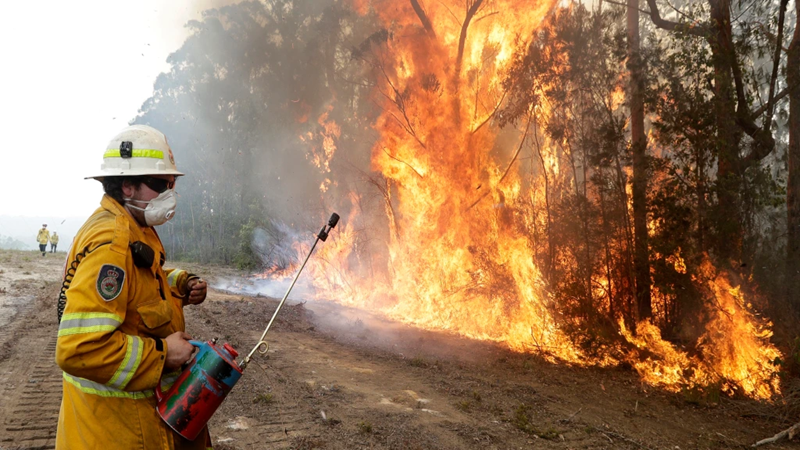
The Climate Security Century: Have We Made Progress?
In 2020, Australia faced its massive raging bushfires, while the Amazon forest, which is the biggest rainforest in the world and produces 20% of the earth’s oxygen, was also blazing. Since then, what has changed?
Today, while the world is slowly overcoming the challenges of the pandemic, the inevitable force of nature as a consequence of human actions remains. This is evident with California’s wildfires and the devastating typhoons across the globe as the Pacific Ocean becomes warmer. In fact, the recently released UN climate report reveals that efforts to cut down greenhouse emissions remain insufficient, and that more ambitious actions are urgently needed.
In 2019, a survey by the World Economic Forum ranked environmental threats, such as extreme weather events, failure of climate change mitigation, and natural disasters, among the top three global risks in terms of likelihood and impact. With this, the climate crisis also has a direct implication on access to food, water, and even a safe shelter. Resources are not infinite, and they cannot always be easily replenished.
Consequently, the reduced access to these basic necessities caused by extreme weather conditions would most likely induce domestic conflict with increasing competition for scarce food and water supplies. It may also give rise to extremist groups and civil conflicts. The impact also includes regional tensions with deepening interest in territorial possession, especially those that are rich in resources.
For instance, the disputes in the South China Seas are not merely for political purposes; they also reflect the desire to possess the abundant minerals and resources, such as fisheries, in these waters, which could aid food security. According to Miroslav Jena, the UN Assistant Secretary-General for Europe, Central Asia, and the Americas, "the failure to consider the growing impacts of climate change will undermine our efforts at conflict prevention, peacemaking, and sustaining peace, and risk trapping vulnerable countries in a vicious cycle of climate disaster and conflict."
This is further aggravated by issues of mass migration or the so-called "climate refugees" because of flooding, drought, crop failure, and other extreme weather conditions that prompt violent conflict and, more importantly, the possibility that small island nations like the Maldives and Tuvalu will be submerged underwater in the future because of rising water levels, thereby threatening their territorial integrity, sovereignty, and ultimately, their survival.
Another problem that continually hampers effective action to address the climate crisis is the lack of collective action. This can be best explained by the concept of the "tragedy of the commons," wherein, despite the collective interest in addressing environmental degradation, states choose not to impose upon themselves the cost of unilateral environmental action as this is costly and a burden on their competitiveness.
For instance, there is a refusal by some states to participate in cutting their carbon emissions because it has a detrimental effect on their economies. This remains a problem today and hampers an effective response to climate change, especially in those countries that are the biggest emitters of CO2.
Hence, the upcoming Conference of the Parties (COP) 27 held in Egypt this November endeavors to tackle several issues to combat the climate crisis, especially those that have not been addressed in COP 26. In this conference, world leaders and relevant stakeholders are compelled to adopt sustainable practices to address the global threat and consequences of a warming planet in the midst of corporate influence.
After all, climate change, especially during these crucial years, is not just a concern of one country but an imperative crisis that requires an effective and collective response from the international community.





